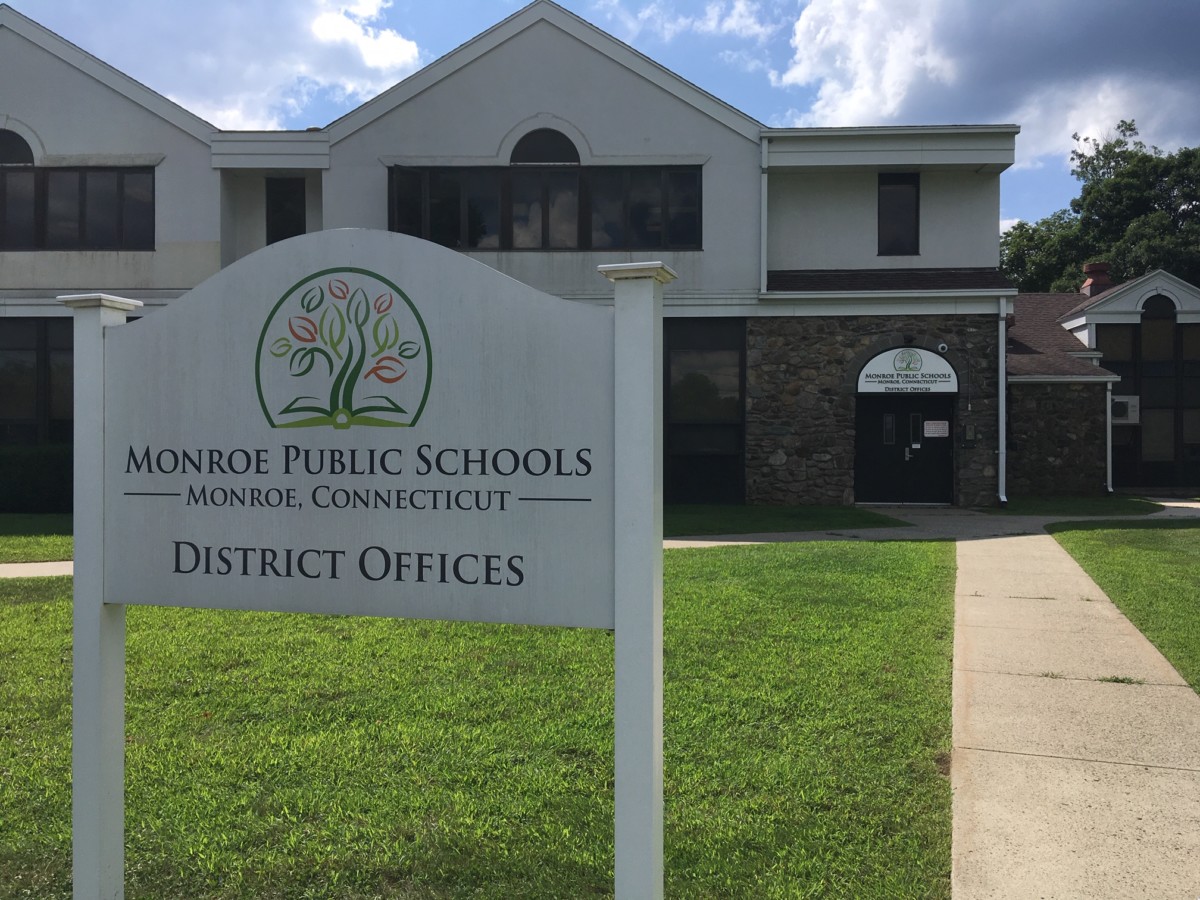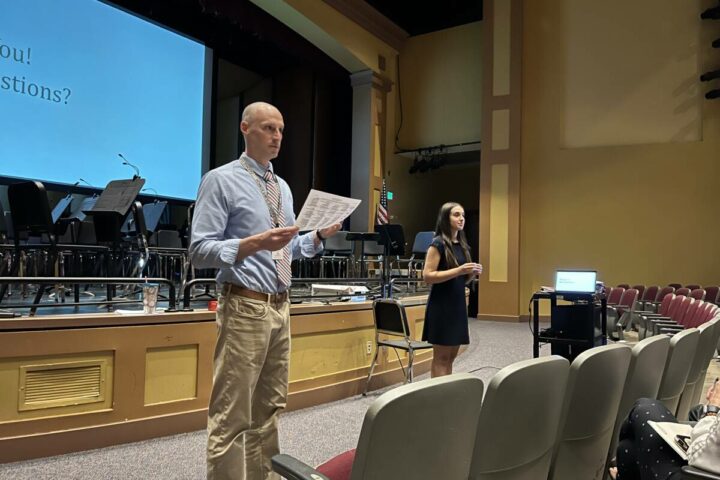MONROE, CT — Superintendent of Schools Joseph Kobza’s $64.8 million budget proposal for fiscal year 2022-23 carries a 5.39 percent spending increase. This may cause sticker shock for some taxpayers, but some relief is in sight.
The spending plan includes $693,744 worth of staff positions currently covered by federal grant money. By continuing to use the grant funds for some or all of these expenses, the budget increase, and hit to taxpayers, can be reduced.
However, if none of that expense is moved to the operating budget, townspeople would have to cover the positions all at once two years from now, when the grant money runs out. Board of Education members call this “falling off the cliff.”
Ronald Bunovsky Jr., the finance director for the school district and the town, prepared a presentation showing how much the budget increase can be reduced by using different amounts of the grant money.
If all of the $694,744 is used to cover salaries for several teachers, behavior techs, a social worker, a psychologist and a K-5 math coordinator, the overall education spending increase would be reduced by 1.13 percent, according to Bunovsky’s analysis.
Rising enrollment and salaries are driving the bulk of this year’s proposed increase.
During the Board of Education’s meeting on Jan. 4, Chairman David Ferris asked fellow board members how they wanted to handle the situation.
Nick Kapoor, a board member, noted how the Elementary and Secondary School Emergency Relief (ESSER II)/American Rescue Plan ESSER funds are meant to be used to mitigate learning loss from the COVID-19 pandemic — not for operational expenses.
“This isn’t what these grants were meant for. That’s the biggest thing I can’t get over,” Kapoor said, adding of the staff positions, “I firmly believe that this is money that should be covered by the town, especially in light of the surplus that we have returned.”
The Board of Education finished the last fiscal year with a $2 million surplus, which must be returned to the town.
Kapoor said if that money could be used to cover the staff positions, it could free up the ESSER funds to be used as intended — mitigating learning loss from COVID.
When asked what he would spend the ESSER funds on if it did not cover the salaries for a number of positions, Kobza mentioned a targeted tutoring program.
“Are these positions decreasing the learning loss?” Justin Orlando, a board member, asked. “Are these positions closing that gap?”
“I think you could definitely make that argument,” Kobza said.
“How would that gap be if we didn’t have those resources?” Orlando said. “That would be my argument to justify having that grant money cover that.”
He said board members should keep the current economic climate in mind when finalizing the budget and increase to go to the first selectman and Board of Finance.
“We have to get that number down, while still supplying what we have to do,” Orlando said. “I think the taxpayer, it’s gonna to be a tough pill to swallow, with inflation and everything that’s happening, to say, ‘hey, by the way, there’s a five-and-a-half percent increase to the budget.'”
Dennis Condon, a board member, spoke in favor of “a blended solution”, using some of the grant money to reduce operating expenses, while moving some expenses over to the operating budget.
“We all want to avoid the cliff,” Condon said of paying the entire expense for staff positions with grant money that will run out. But he added the board also has to make it fair for the community during tough times, when 250 families are receiving help from the Monroe Food Pantry.
“I respect the fact it is an operating expense, but we have to reduce the increase,”Condon said.
Jerry Stevens, a board member, agreed with Kapoor, preferring to fund the staff positions in the operating budget.
“I understand that theory as well,” Ferris said. “I’m struggling with how do we go to the taxpayers and ask for a 5.39 and keep $1.6 million in grants that we’re not using to reduce the tax burden? Even if we used 75 percent, we’re lowering our increase by 0.85.”
Ferris suggested inviting Board of Finance Chairman Michael Manjos and members of his board to their next school board meeting on Jan. 18 to hear what their thoughts are.
Ferris said he wants to have a dialogue with Manjos and First Selectman Ken Kellogg to ensure the Board of Education approves a budget that provides what the school system needs, while making it to the referendum without major cuts.










Short answer is YES!!!
No way, that’s not what the funds are for. It’s unethical to use COVID-19 grant money for basic operations.
“The funding allows for expenses that reduce the pandemic’s impacts on students through the purchase of health screening tools, funds for learning loss, and additional resources to address the mental well-being of students impacted by the isolation of the lockdown.”
https://raptortech.com/resources/funding/
Not really the intended use for this grant